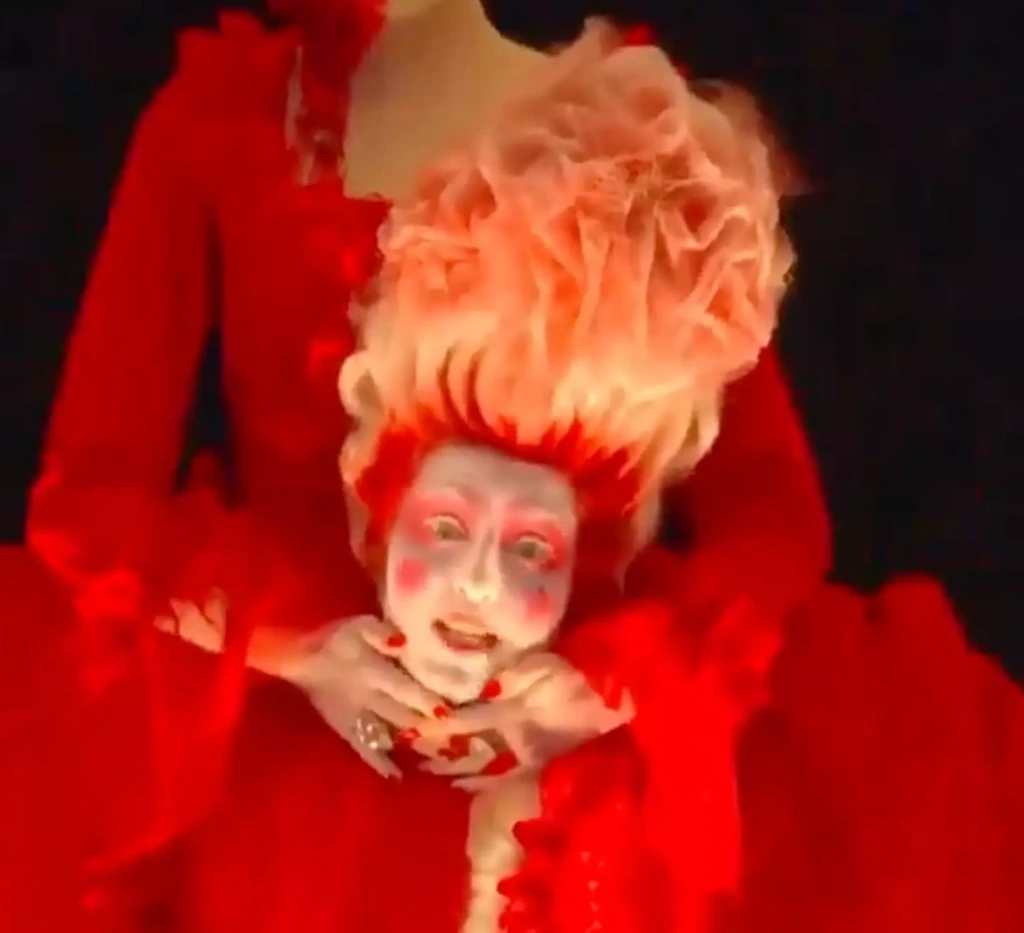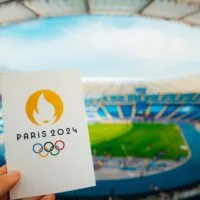The Paris 2024 Olympics kicked off with an extravagant Opening Ceremony that has since become a hot topic of conversation, but not for the reasons the organizers had hoped. The grand event, meant to symbolize unity and celebration, inadvertently sparked outrage among viewers, particularly within one religious group. With elements that included headless dancers and a provocative portrayal of ancient deities, the ceremony left many questioning its appropriateness and respect for cultural sensitivities.
As debates rage online and apologies are issued, the question remains: how did a ceremony designed to bring people together end up causing such a divide? The uproar, fueled by social media reactions and statements from religious leaders, highlights the fine line global events must tread to honor diverse beliefs and values. Let’s delve into what transpired and the lessons that can be learned from this controversial start to the Paris 2024 Olympics.

The Controversial Ceremony
The Paris 2024 Olympics Opening Ceremony was a spectacle meant to captivate and inspire, but several key elements quickly became points of contention. One of the most striking moments was the depiction of headless Queen Marie Antoinettes. These figures, referencing the historical queen who was executed in 1793, paraded through the ceremony, sparking immediate outrage among viewers. Many took to social media, labeling the portrayal as “satanic” and deeply offensive.
Adding to the controversy was a performance on the Debilly Bridge over the River Seine, where a nearly naked man, painted blue, lay across a table surrounded by fruit. This act was intended to symbolize the Greek god Dionysus, but many viewers saw it as a disrespectful mockery of Leonardo Da Vinci’s ‘The Last Supper’. The character’s subsequent song and the dancers’ headless costumes only fueled the criticism, with numerous Christians and religious leaders expressing their discontent online and in public statements.
The backlash was swift and widespread, with hashtags and heated debates dominating social media platforms. Critics argued that the ceremony’s creative choices were not only in poor taste but also an affront to deeply held religious beliefs. The uproar highlighted a significant disconnect between the organizers’ artistic vision and the public’s reception, raising questions about the importance of cultural and religious sensitivity in global events.
Religious and Cultural Sensitivities
The portrayal of the Greek god Dionysus during the Opening Ceremony drew sharp criticism for its perceived irreverence toward Christian iconography. The sight of a nearly naked, blue-painted man lying across a dinner table with fruit surrounding him was seen by many as a parody of Da Vinci’s ‘The Last Supper,’ which holds profound significance in Christianity as it depicts Jesus’ final meal with his apostles. This provocative imagery struck a nerve with many viewers who felt it was a blatant attack on Christian values.
The performance was met with immediate backlash from religious communities worldwide. French Bishops and other religious leaders were quick to voice their disapproval, emphasizing that the ceremony’s portrayal was not just inappropriate but deeply offensive. Statements condemning the act were issued, with many calling for greater respect for religious symbols and practices in such high-profile, global events.
Social media platforms became a battleground for opinions, with some users passionately defending the artistic expression while others vehemently opposed it. Comments and posts ranged from calls for an official apology to discussions about the broader implications of such portrayals on religious tolerance and respect. The controversy underscored the delicate balance between artistic freedom and the need to honor the diverse cultural and religious sentiments of a global audience.
Official Apology and Responses
In response to the mounting criticism, Paris 2024 Olympics spokeswoman Anne Descamps issued an official apology. Speaking to a group of reporters, she emphasized that the intention behind the Opening Ceremony was never to show disrespect to any religious group. “If people have taken any offence, we are of course really, really sorry,” she stated, acknowledging the unintended consequences of the artistic choices made during the event.
The ceremony’s director, Thomas Jolly, also addressed the controversy, providing insight into his creative vision. Jolly explained that the goal was to create a grand pagan celebration inspired by the gods of Olympus, intending to unify people through a shared sense of spectacle and wonder. “You’ll never find in my work any desire to mock or denigrate anyone,” he clarified. “I wanted a ceremony that brings people together, that reconciles, but also a ceremony that affirms our Republican values of liberty, equality, and fraternity.”
Jolly further defended the depiction of the headless Queen Marie Antoinettes, stating that there was no intention to glorify the guillotine or the act of execution. Instead, the imagery was meant to evoke historical reflection and artistic expression. Despite these explanations, the public’s reaction remained divided, with some appreciating the artistic vision and others feeling that it crossed a line.
The apologies and explanations highlighted the challenges of producing a globally inclusive event. While the intention was to create a memorable and unifying experience, the result revealed the complexities and sensitivities involved in representing diverse cultural and religious beliefs on such a grand stage.
Inspiration from Adversity: Lessons from the Controversy
Controversies like the one sparked by the Paris 2024 Olympics Opening Ceremony can serve as powerful catalysts for change and understanding. While the initial reaction was one of outrage and hurt, these moments also offer an opportunity for deeper reflection and growth. In the face of adversity, there are valuable lessons to be learned about cultural sensitivity, artistic expression, and the importance of inclusive representation.
- Firstly, this incident underscores the necessity of considering diverse perspectives when planning global events. The world is a mosaic of different cultures, religions, and values, and recognizing this diversity can help create more inclusive and respectful celebrations. Event organizers can benefit from consulting with cultural and religious experts to better understand the potential impact of their artistic choices.
- Secondly, the controversy highlights the fine line between artistic freedom and cultural respect. While creativity should be celebrated and encouraged, it is equally important to ensure that such expressions do not inadvertently offend or alienate segments of the audience. Striking this balance requires a nuanced approach that honors the integrity of the artistic vision while being mindful of the diverse beliefs and values of the global community.
- Finally, the situation exemplifies the power of dialogue and apology in resolving conflicts. The swift apologies from the Paris 2024 Olympics organizers and the detailed explanations from Thomas Jolly demonstrate the importance of acknowledging mistakes and taking responsibility. These actions can help rebuild trust and foster a spirit of reconciliation and understanding.
By learning from these experiences, future events can become more inclusive and respectful, celebrating the rich tapestry of human culture without inadvertently causing harm or offense. The lessons from the Paris 2024 Olympics Opening Ceremony controversy remind us that, even in moments of conflict, there is an opportunity for growth, understanding, and the reaffirmation of shared values.
Navigating Controversy: Finding Common Ground
The Paris 2024 Olympics Opening Ceremony controversy highlights the complexities of navigating cultural and religious sensitivities in a globalized world. Despite the initial backlash, such incidents can also pave the way for greater understanding and empathy among diverse groups. Finding common ground is essential in fostering a more inclusive and respectful global community.
Understanding the roots of the outrage is the first step towards reconciliation. The headless Queen Marie Antoinettes and the portrayal of Dionysus were seen by many as direct affronts to their cultural and religious values. Acknowledging these feelings is crucial. It’s important to recognize that what might seem like artistic expression to some can be deeply offensive to others.
This situation also emphasizes the importance of open dialogue. Engaging in conversations about why certain portrayals are hurtful can lead to greater awareness and sensitivity. Such dialogues can help bridge gaps between different cultural and religious communities, promoting mutual respect and understanding.
Moreover, it’s vital to remember the power of apology and accountability. The swift response from the Paris 2024 Olympics officials, along with their sincere apologies, played a significant role in addressing the hurt caused. This act of taking responsibility can help heal wounds and restore trust.
As we move forward, it’s essential to celebrate our differences and embrace the diversity that makes our world unique. By learning from past mistakes and striving to understand each other better, we can create a more harmonious and inclusive global community. The Paris 2024 Olympics Opening Ceremony controversy, while initially divisive, ultimately offers a chance for growth and unity.
Embracing Unity Through Understanding
The Paris 2024 Olympics Opening Ceremony, while intended to be a unifying spectacle, instead sparked a significant controversy that highlighted the complexities of cultural and religious sensitivities in our globalized world. The event’s portrayal of historical and mythical figures led to widespread outrage, particularly among religious groups, prompting a necessary dialogue about respect and inclusivity.
The official apologies from the Olympics organizers and the artistic director underscored the importance of taking responsibility and engaging in meaningful conversations about the impact of artistic expressions. This incident serves as a powerful reminder of the delicate balance required when showcasing diverse cultures and beliefs on a global stage.
Ultimately, the controversy surrounding the Paris 2024 Olympics Opening Ceremony offers valuable lessons in empathy, cultural awareness, and the importance of open dialogue. By learning from these experiences, we can work towards creating events that truly celebrate our shared humanity while honoring the rich tapestry of our diverse world. Through understanding and respect, we can transform moments of division into opportunities for unity and growth.



